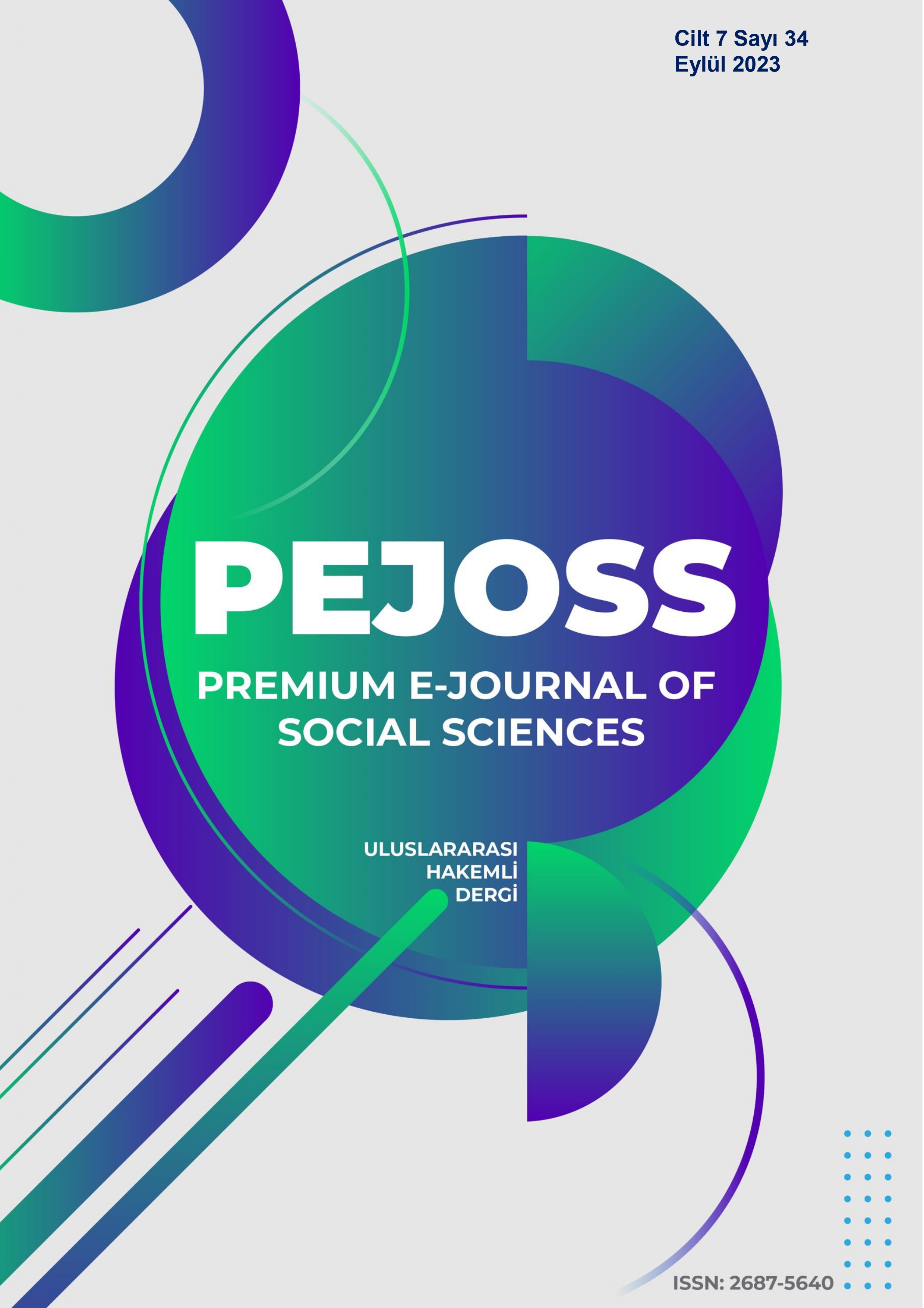Examining Teacher Attitudes Towards Online Live Lessons
DOI:
https://doi.org/10.5281/zenodo.8404856Keywords:
Distance education, Eba, Live Lessons, OnlineAbstract
The aim of this research is to identify the difficulties faced by teachers working in schools affiliated with the Ministry of National Education in the online live lesson process, to determine the advantages and disadvantages of online live lessons, and to reveal the methods they use while managing the preparation process for online live lessons. When the literature was reviewed, it was observed that the number of studies examining the attitudes of secondary school teachers who gave online live lessons was quite insufficient and limited. It is thought that this research will contribute to other research on teachers teaching online. The research was conducted using the structured interview technique, which is one of the qualitative research techniques frequently used in social sciences recently. It was determined that 31 of the 48 teachers included in the research were female (64.6%) and 17 were male (35.4%). Additionally, out of 48 teachers, 31 (64.54%) are between the ages of 23-29, 12 (25.1%) are between the ages of 30-40, and 5 (10.36%) are aged 41 and over. It was found that. According to these findings, the fact that the age ratios of the participants are far from each other shows that the age range in the sample selection was taken wide. In addition, it was determined that 31 of the 48 teachers included in the study were female (64.6%) and 17 were male (35.4%). In this study, the educational status of the teachers who participated in the survey was categorized as undergraduate, master's degree and doctorate, and it was expected to choose among these statuses. According to the findings, it was determined that the majority of those who participated in the survey were undergraduate graduates.
Downloads
References
Ağır, F. (2007). Özel Okullarda Ve Devlet Okullarında Çalışan İlköğretim Öğretmenlerinin Uzaktan Eğitime Karşı Tutumlarının Belirlenmesi. [Yüksek Lisans Tezi], Balıkesir Üniversitesi, Fen Bilimleri Enstitüsü, Balıkesir.
Aktay S. & Keskin, T. (2016). Eğitim Bilişim Ağı (EBA) İncelemesi. Eğitim Kuram ve Uygulama Araştırmaları Dergisi, 27-44.
Altun, E. (2020). Eğitmenlerin Uzaktan Eğitime Yönelik Pedagojik Yeterliliklerinin Uzaktan Eğitim Ders Videoları Aracılığıyla İncelemesi. [Yüksek Lisans Tezi], On Dokuz Mayıs Üniversitesi.
Başaran, M., Doğan, E., Karaoğlu, E., & Şahin, E. (2020). Koronavirüs ( Covid-19) Pandemi Sürecnin Getirisi Olan Uzaktan Eğitimin Etkililiği Üzerine Bir Çalışma. Academia Eğitim Araştırmaları Dergisi, 368-397.
Bozkurt, A. (2017). Türkiye'de Uzaktan Eğitimin Dünü, Bugünü, Yarını. Açıköğretim Uygulamaları Ve Araştırmaları Dergisi, 85-124.
Bozkurt, A. (2020). Koronavirüs (Covid-19) Pandemi Süreci Ve Pandemi Sonrası Dünyada Eğitime Yönelik Değerlendirmeler: Yeni Normal Ve Yeni Eğitim Paradiğması. Açıköğretim Uygulamaları ve Araştırmaları Dergisi, 112-142.
Can, E. (2020). Coronavirüs (Covid-19)Pandemisi Ve Pedagojik Yansımaları: Türkiye'de Açık Ve Uzaktan Eğitim Uygulamaları. Açıköğretim Uygulamaları Ve Araştırmaları Dergisi, 11-53.
Çok, C. (2021). Öğretmenlerin Uzaktan Eğitime İlişkin Özyeterlik Algısı Ve Pandemi Sürecinde Uzaktan Eğitimde Karşılaştıkları Engeller. Van.
Deniz, S. (2021). Öğretmenlere Yönelik Uzaktan Eğitim Tutum Ölçeğinin Geliştirilmesi ve Öğretmen Tutumlarının Çeşitli Değişkenlere Göre İncelenmesi. [Yüksek Lisans Tezi], Gaziantep Üniversitesi.
Kaplan, E., Kul, H. H., Bektaş, O. ve Armağan, F. Ö. (2021). Sekizinci sınıf velilerinin uzaktan eğitim sürecine yönelik tutumları: Kayseri ili örneği. Ihlara Eğitim Araştırmaları Dergisi, 6(2), 251-277.
Kaymaz, A. (2021). Uzaktan eğitim sürecinde değişen iş yükü ve etkilerine ilişkin öğretmen görüşleri. Uluslararası Liderlik Eğitimi Dergisi, 1(1), 91-105.
İşman, A. (2011). Uzaktan Eğitim. Pegem Yayınları.
Özbay, Ö. (2015). Dünyada Ve Türkiye'de Uzaktan Eğitimin Güncel Durumu. Uluslararası Eğitim Bilimleri Dergisi, 376-394.
Taşkın, G. ve Aksoy, G. (2021). Uzaktan eğitim hakkında öğretmen görüşleri. Dokuz Eylül Üniversitesi Buca Eğitim Fakültesi Dergisi, 2(52), 622-647.
T.C. Milli Eğitim Bakanlığı (2020). EBA'da Canlı Sınıfla Eğitim Başlıyor. Covıd-19: http://www.meb.gov.tr/ebada-canlisinifla-egitim-basliyor/haber/20602/tr
T.C. Milli Eğitim Bakanlığı (2021). Türkiye Güvenli Okullaşma Ve Uzaktan Eğitim (SSDE) Projesi. Yenilik Ve Eğitim Teknolojileri Genel Müdürlüğü: http://yegitek.meb.gov.tr/www/turkiye-guvenli-okullasma-ve-uzaktan-egitim-ssde-projesi/icerik/3050
Ülkü, S. (2018). İlkokullarda Görev Yapan Öğretmenlerin Uzaktan Eğitime Yönelik Tutumları. [Yüksek Lisans Tezi], Abant İzzet Baysal Üniversitesi.
Vatansever Bayraktar, H. ve Gökğınar, İ. (2021). Sınıf Öğretmenleri Ve Eğitim yöneticilerinin iş stresi düzeylerinin çeşitli değişkenlere göre incelenmesi, International Journal of Eurasia Social Sciences (IJOESS), 12(46), 870-885. DOI: http://dx.doi.org/10.35826/ijoess.3018
Yıldırım, A. (1999). Nitel Araştırma Yöntemlerinin Temel Özellikleri. Eğitim ve Bilim http://eb.ted.org.tr/index.php/EB/article/view/5326/1485.
Yürek, E. (2021). Okul Öncesi Eğitimde Uzaktan Eğitimin Uygulanabilirliğine Yönelik Okul Öncesi Öğretmenlerinin ve Alandaki Akademisyenlerinin Görüşlerinin İncelenmesi. [Yayımlanmamış Yüksek Lisans Tezi], Fatih Sultan Mehmet Vakıf Üniversitesi.
Wikipedia (t.y.). Demografi https://tr.wikipedia.org/wiki/Demografi#:~:text=
Downloads
Published
How to Cite
Issue
Section
License
Copyright (c) 2023 Premium e-Journal of Social Science (PEJOSS)

This work is licensed under a Creative Commons Attribution 4.0 International License.


